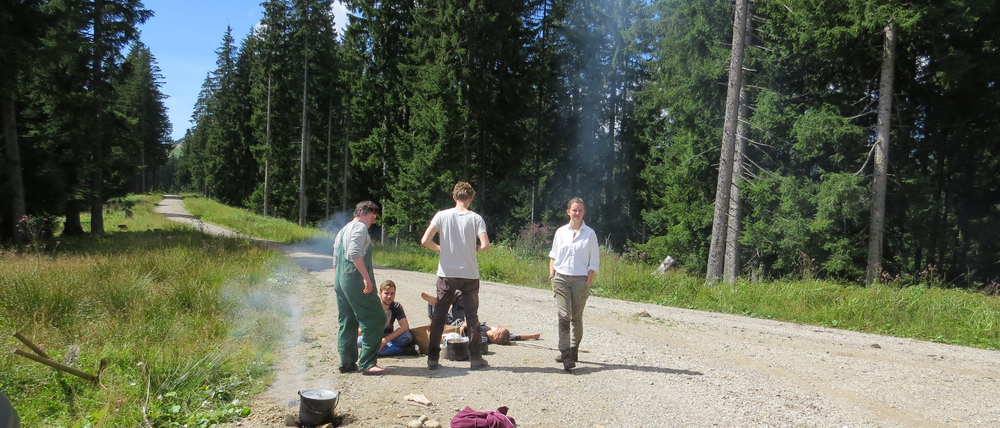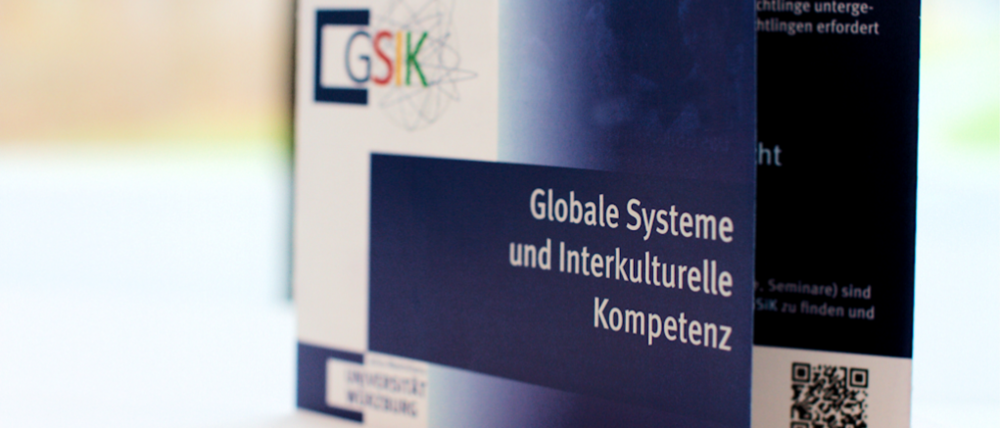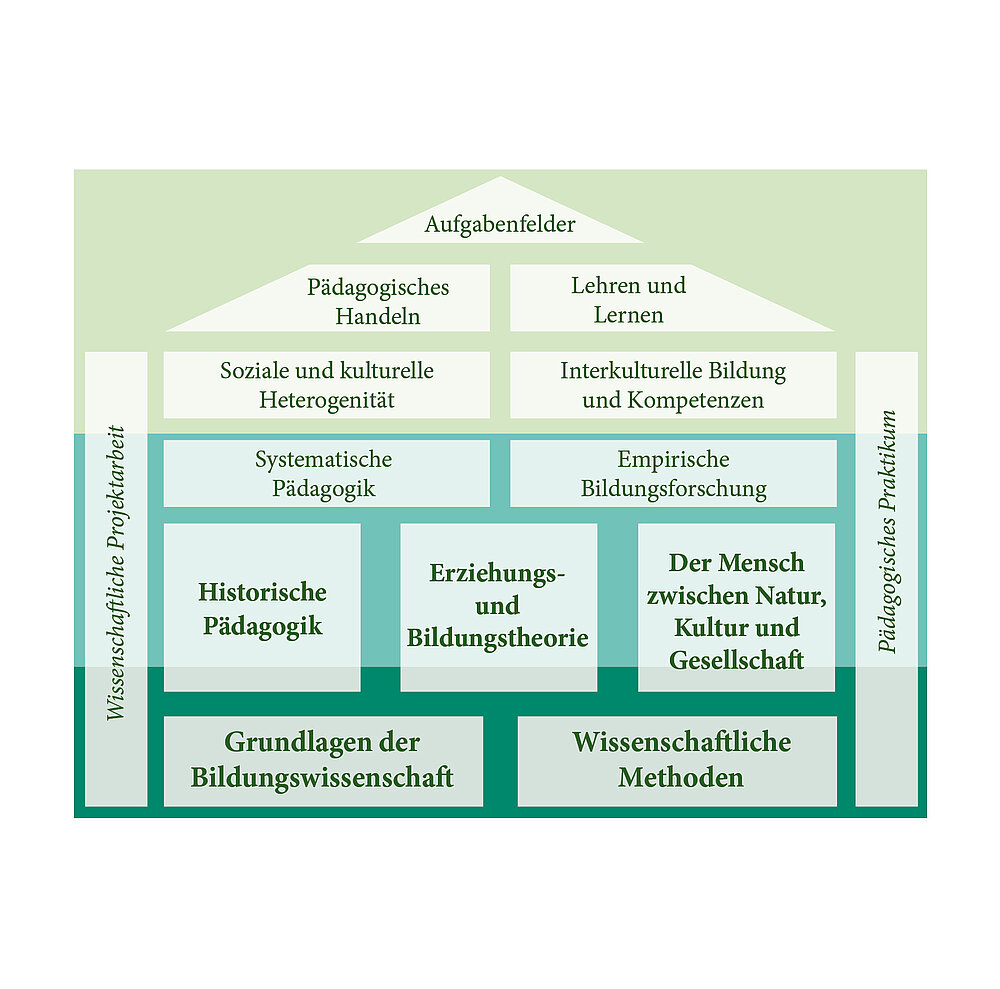Structure and contents
The bachelor's degree program in education is offered as a one-subject or two-subject program. In the latter case, you study the Pedagogy program in combination with another field of study. You have three variants to choose from on how to combine these two subjects:
Pedagogy major: 180 ECTS
- Compulsory area of pedagogy: 135 ECTS credits
- Compulsory elective area of pedagogy: 15 ECTS credits
- Key qualification area
- Subject-specific key qualifications (FSQ): 15 ECTS credits (from the pedagogy pool)
- General Key Qualifications (ASQ): 5 ECTS credits (from the ASQ pool of JMU)
- Bachelor thesis: 10 ECTS credits (in pedagogy)
(without second subject)
Study and examination regulations (as of 2020)
- General Study and Examination Regulations (ASPO) for the Bachelor's and Master's Programs at Julius-Maximilians-Universität Würzburg
- Subject Specific Regulations (FSB) with Subject Description (SFB)
- Module Manuals and Subject Descriptions (SFB)
- Study Sequence Plan (SVP) (Serves as orientation. Students can largely determine the sequence of modules themselves in most cases).
Pedagogy major: 120 ECTS
- Compulsory area of pedagogy: 85 ECTS credits
- Compulsory elective pedagogy: 5 ECTS credits
- Key qualification area
- Subject-specific key qualifications (FSQ): 15 ECTS credits (from pedagogy)
- General Key Qualifications (ASQ): 5 ECTS credits (from the ASQ pool of JMU)
- Bachelor thesis: 10 ECTS points (in pedagogy)
Minor subject: 60 ECTS credits
(The desired future field of work may play a role in the choice of a minor. Frequently chosen are: Biology, Art Education, Music Education, Philosophy, Political and Social Studies, Law, Special Education, or Economics. This listing is for guidance only. You are free to choose your minor).
Study and examination regulations (as of 2020)
- General Study and Examination Regulations (ASPO) for the Bachelor's and Master's Programs at Julius-Maximilians-Universität Würzburg
- Subject Specific Regulations (FSB) with Subject Description (SFB)
- Module Manuals and Subject Descriptions (SFB)
- Study Sequence Plan (SVP) (Serves as orientation. Students can largely determine the sequence of modules themselves in most cases).
Pedagogy major: 75 ECTS
- Compulsory area of pedagogy: 70 ECTS credits
- Compulsory elective pedagogy: 5 ECTS credits
Second major subject: 75 ECTS credits
Key qualification area
- Subject-specific key qualifications (FSQ) : 15 ECTS credits (5-10 from each of the two main subjects)
- General key qualifications (ASQ): 5 ECTS credits (from the ASQ pool of JMU)
Bachelor thesis: 10 ECTS credits (in one of the two main subjects)
Study and examination regulations (as of 2020)
- General Study and Examination Regulations (ASPO) for the Bachelor's and Master's Programs at Julius-Maximilians-Universität Würzburg
- Subject Specific Regulations (FSB) with Subject Description (SFB)
- Module Manuals and Subject Descriptions (SFB)
- Study Sequence Plan (SVP) (Serves as orientation. Students can largely determine the sequence of modules themselves in most cases).
Minor in pedagogy: 60 ECTS
- Compulsory subject Pedagogy: 60 ECTS credits
Major subject: 120 ECTS credits (for more information, please visit the website of the corresponding subject)
Study and examination regulations (as of 2020)
- General Study and Examination Regulations (ASPO) for the Bachelor's and Master's Degree Programs at the Julius-Maximilians-University of Würzburg
- Subject-specific regulations (FSB) with subject descriptions (SFB)
- Module handbooks and subject descriptions (SFB)
- Course of Study Plan (SVP) (Serves as orientation. Students can largely determine the sequence of modules themselves in most cases.)
The regulations correspond to the current status and are generally valid for first-year students. For students in higher semesters, other versions of the regulations apply in some cases. All previous versions of the documents for enrolled students can be found in the study portal Pedagogy.
Possible combinations
The subject of education can be combined with a variety of other subjects. A complete list of all possible combinations at JMU can be found on the website of the Student Advisory Service. In addition, you can find out there which degree programs are open-admission and admission-restricted.
Topics and contents of the study
As a student of education, you will deal intensively with central questions and theories around the topics of education, upbringing and socialization. You will also learn the basics of empirical research theories and methods. You will gain important insights into pedagogical fields of action in order to be able to understand and reflect on both the prerequisites and the consequences of pedagogical action. Since pedagogy represents an action-oriented subject area, the dialogue between theory and practice also finds its place in the course of study.
Profile development
In order to promote your individual interests, and to build your profile for the job market, we offer two specialization courses in key educational areas in addition to the BA Pedagogy degree. You can acquire additional certificates to your degree in both areas during your studies of the Bachelor Pedagogy and the Master Educational Science.

The topics "environmental education" or "education for sustainable development" are booming and the related theoretical field of sustainability research is one of the most exciting interdisciplinary research fields. In cooperation with the Bergwaldprojekt e. V., the Chair of Systematic Educational Science examines the subject area from a theoretical and practical perspective. Information about the program and the certificate can be found on the website of the Chair of Systematic Educational Science. Contact persons for the certificate are Jan-Philipp Schäfer and Wiebke Degler.

Every human being is a culture-creating and culture-becoming being. "Intercultural competence" is therefore needed not only in pedagogical work with migrants, but in almost every pedagogical situation where people of different cultures (i.e. different generations, genders, social milieus, religions, nationalities, etc.) meet. The project "Global Systems and Intercultural Competence" (GSiK) offers an interdisciplinary teaching program on this topic.
More than 200 events per semester from over 40 departments are offered by this extraordinary project at our university. Intercultural competencies, backgrounds on the global systems that condition interculturality, and culture-specific knowledge are the program's subject areas, and all of this from the multidisciplinary perspectives of a comprehensive university. The GSiK project thus revives the original idea of the university (from Latin universitas: totality) as a comprehensive scientific institution and offers the opportunity for diverse interdisciplinary insights in addition to the necessary specialization in the subject studies. The Chair of Systematic Educational Science and the Chair of Adult Education/Continuing Education are also involved in the university-wide GSiK teaching program. Students of all majors can participate in this undergraduate program and have their commitment confirmed by one of the prestigious GSiK certificates. Information on the program and the certificates is provided by the GSiK project website.

Are you considering spending part of your studies abroad? A semester abroad is a good idea if you want to get to know the people and cultures of other countries, improve your foreign language skills, experience your field of study from a different perspective for a change, or simply make international contacts. JMU and the Institute of Education will help you organize your stay abroad.
The best-known program that allows you to spend a study semester abroad is the Erasmus program of the European Union. General information about Erasmus studies can be obtained from the International Affairs Service Center at JMU. The Institute of Education also offers an "Erasmus+" program for its students. Information on this can be found on the websites of the Chair of Adult Education/Continuing Education.












